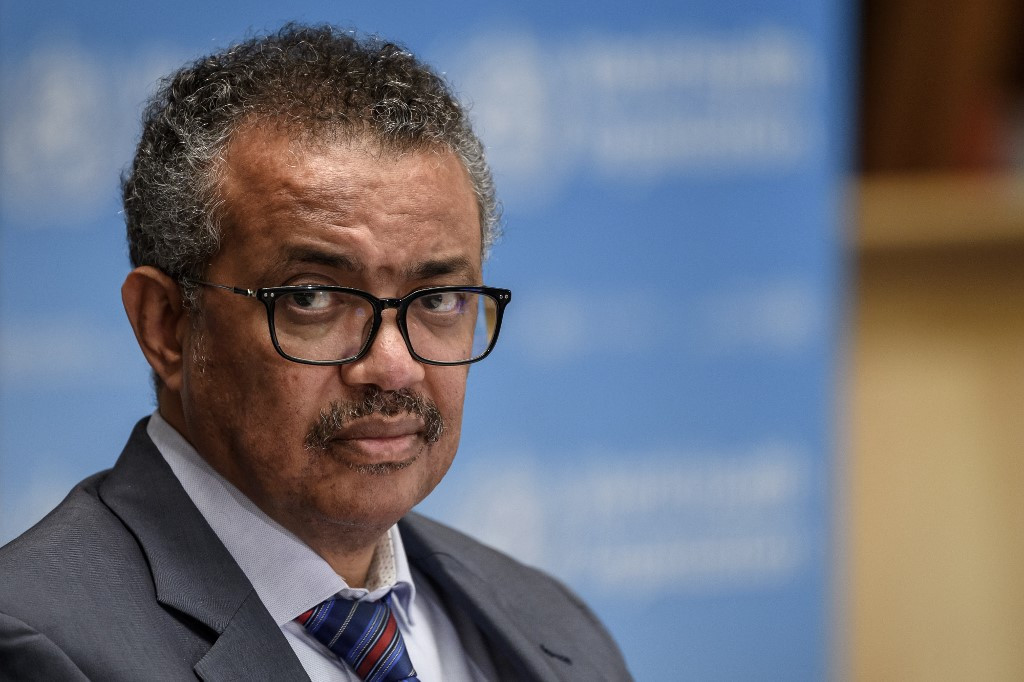Popular Reads
Top Results
Can't find what you're looking for?
View all search resultsPopular Reads
Top Results
Can't find what you're looking for?
View all search resultsHealth center water crisis increasing virus risk: WHO
The lack of this basic amenity endangers patients and staff alike at such centers, the WHO said in a joint report with the UN children's agency UNICEF. The study was based on data from 165 countries.
Change text size
Gift Premium Articles
to Anyone
 World Health Organization (WHO) Director-General Tedros Adhanom Ghebreyesus attends a press conference organised by the Geneva Association of United Nations Correspondents (ACANU) amid the COVID-19 outbreak, caused by the novel coronavirus, on July 3, 2020 at the WHO headquarters in Geneva. (POOL/AFP/Fabrice Coffrini)
World Health Organization (WHO) Director-General Tedros Adhanom Ghebreyesus attends a press conference organised by the Geneva Association of United Nations Correspondents (ACANU) amid the COVID-19 outbreak, caused by the novel coronavirus, on July 3, 2020 at the WHO headquarters in Geneva. (POOL/AFP/Fabrice Coffrini)
O
ne in four health centers worldwide lacks access to water, putting around 1.8 billion people at increased risk of contracting the coronavirus, the World Health Organization said Monday.
The lack of this basic amenity endangers patients and staff alike at such centers, the WHO said in a joint report with the UN children's agency UNICEF. The study was based on data from 165 countries.
"Working in a healthcare facility without water, sanitation and hygiene is akin to sending nurses and doctors to work without personal protective equipment," said WHO chief Tedros Adhanom Ghebreyesus.
These elements "are fundamental to stopping COVID-19. But there are still major gaps to overcome, particularly in least developed countries."
According to WHO figures, while health professionals make up less than three percent of the population, they account for 14 percent of COVID-19 cases recorded around the world.
"Sending healthcare workers and people in need of treatment to facilities without clean water, safe toilets or even soap puts their lives at risk," said UNICEF chief Henrietta Fore.
The report also found that one in three health facilities around the world could not guarantee hand hygiene, while one in 10 did not have access to sanitation services.
The figures are even worse for the world's 47 least-developed countries (LDCs), where half of healthcare centers have no access to drinking water, a quarter have no access to water for hygiene purposes, and three in five lack basic sanitation services.
The WHO and UNICEF calculated that it would cost around $1 per inhabitant to provide basic water services in these countries' health centers - and 20 cents each to maintain such facilities each year.









